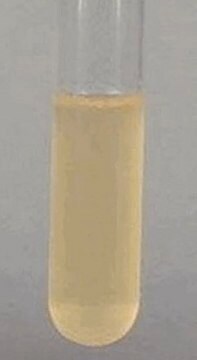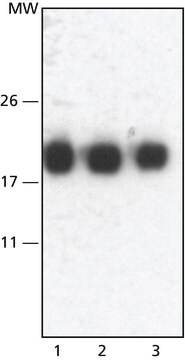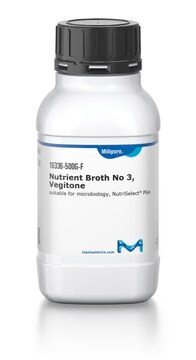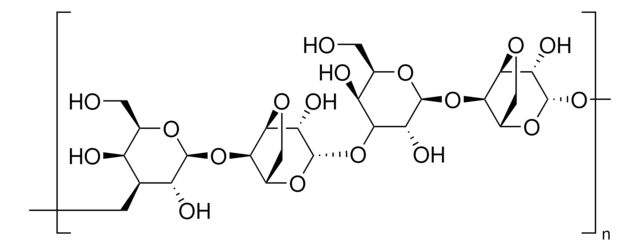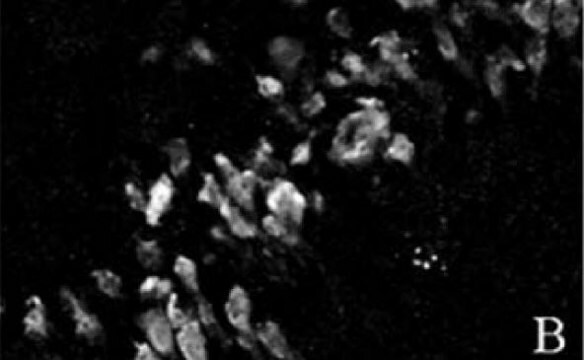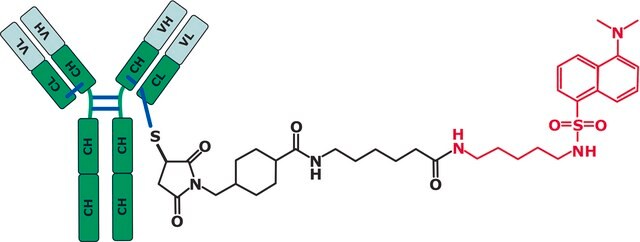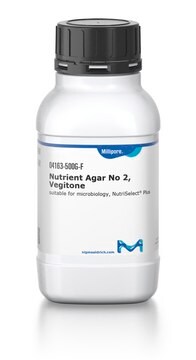W2261
WL nutrient broth
suitable for microbiology, NutriSelect® Plus
Synonym(s):
Wallerstein Laboratory Nutrient Broth
About This Item
Recommended Products
sterility
non-sterile
Quality Level
form
powder
shelf life
limited shelf life, expiry date on the label
manufacturer/tradename
NutriSelect® Plus
technique(s)
microbiological culture: suitable
final pH
5.5±0.2 (25 °C)
application(s)
bioburden testing
food and beverages
microbiology
suitability
selective for Candida spp.
selective for Escherichia coli
selective for Lactobacillus spp.
selective for Pichia spp.
selective for Proteus spp.
selective for Saccharomyces spp.
selective for Zygosaccharomyces spp.
selective for coliforms
Related Categories
Application
Components
Casein enzymatic hydrolysate, 5.00
Yeast extract, 4.00
Dextrose, 50.00
Monopotassium phosphate, 0.55
Potassium chloride, 0.425
Calcium chloride, 0.125
Manganese sulfate, 0.125
Ferric chloride, 0.0025
Manganese sulfate, 0.0025
Bromocresol green, 0.022
Preparation Note
Footnote
The designations basic, plus, or prime are added to indicate the quality control level, from basic quality control to standard QC plus to prime for full regulatory compliance.
Legal Information
Storage Class Code
11 - Combustible Solids
WGK
WGK 3
Flash Point(F)
Not applicable
Flash Point(C)
Not applicable
Personal Protective Equipment
Choose from one of the most recent versions:
Already Own This Product?
Find documentation for the products that you have recently purchased in the Document Library.
Articles
Traditional methods are based morphology, staining methods, enzyme reactions (metabolism) and diverse media.
Molecular biology-based methods, like PCR, can be used for lactobacilli detection. However, they are often quite expensive. We provide a revolutionary molecular biology method that is rapid, easy, and cost-effective.
Probiotics exhibit an inhibitory effect on pathogens, help prevent chronic intestinal inflammatory diseases or atopic syndromes, and support the immune system.
Protocols
Yeasts are considered model systems for eukaryotic studies as they exhibit fast growth and have dispersed cells. Yeast cultures can be grown, maintained, and stored in liquid media or on agar plates using techniques similar to those for bacterial cultures.
Our team of scientists has experience in all areas of research including Life Science, Material Science, Chemical Synthesis, Chromatography, Analytical and many others.
Contact Technical Service